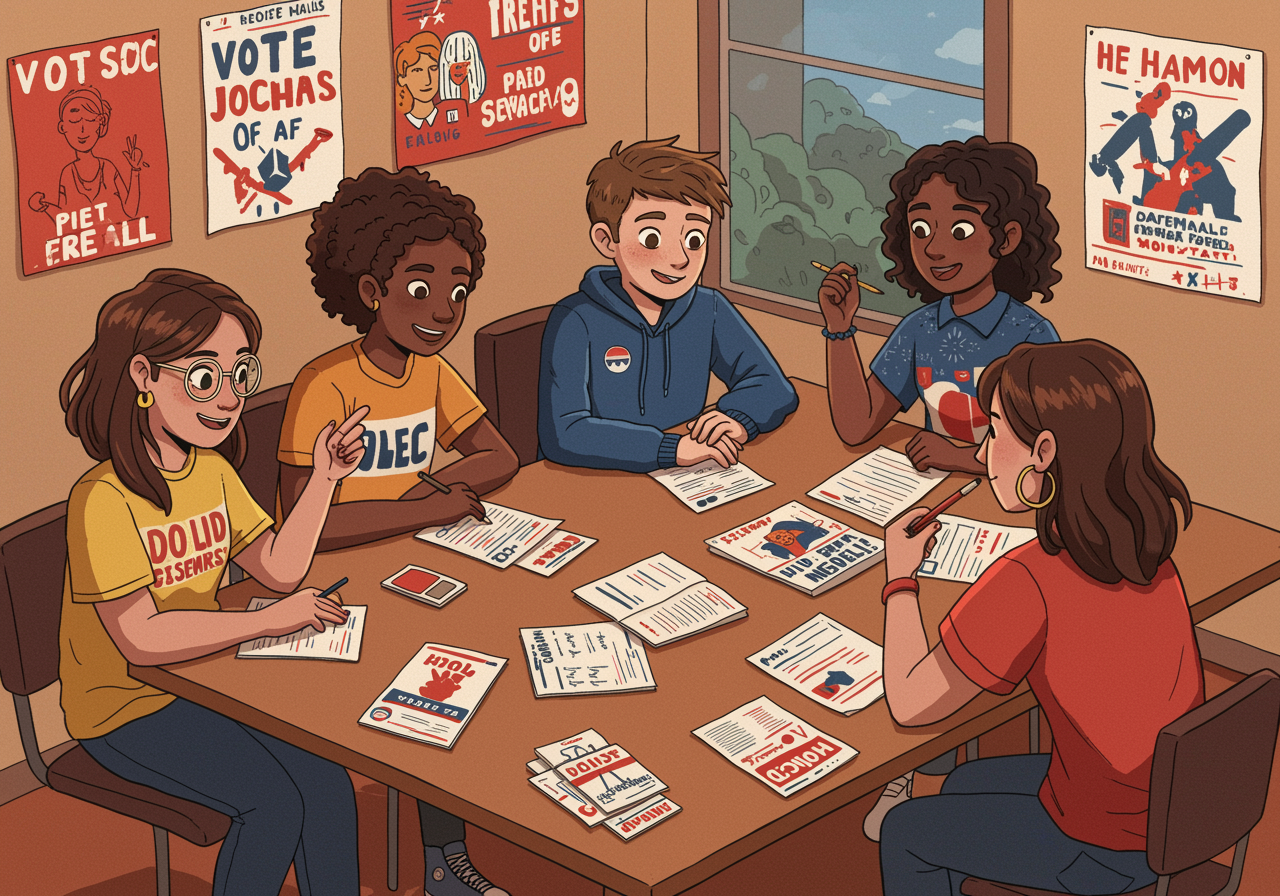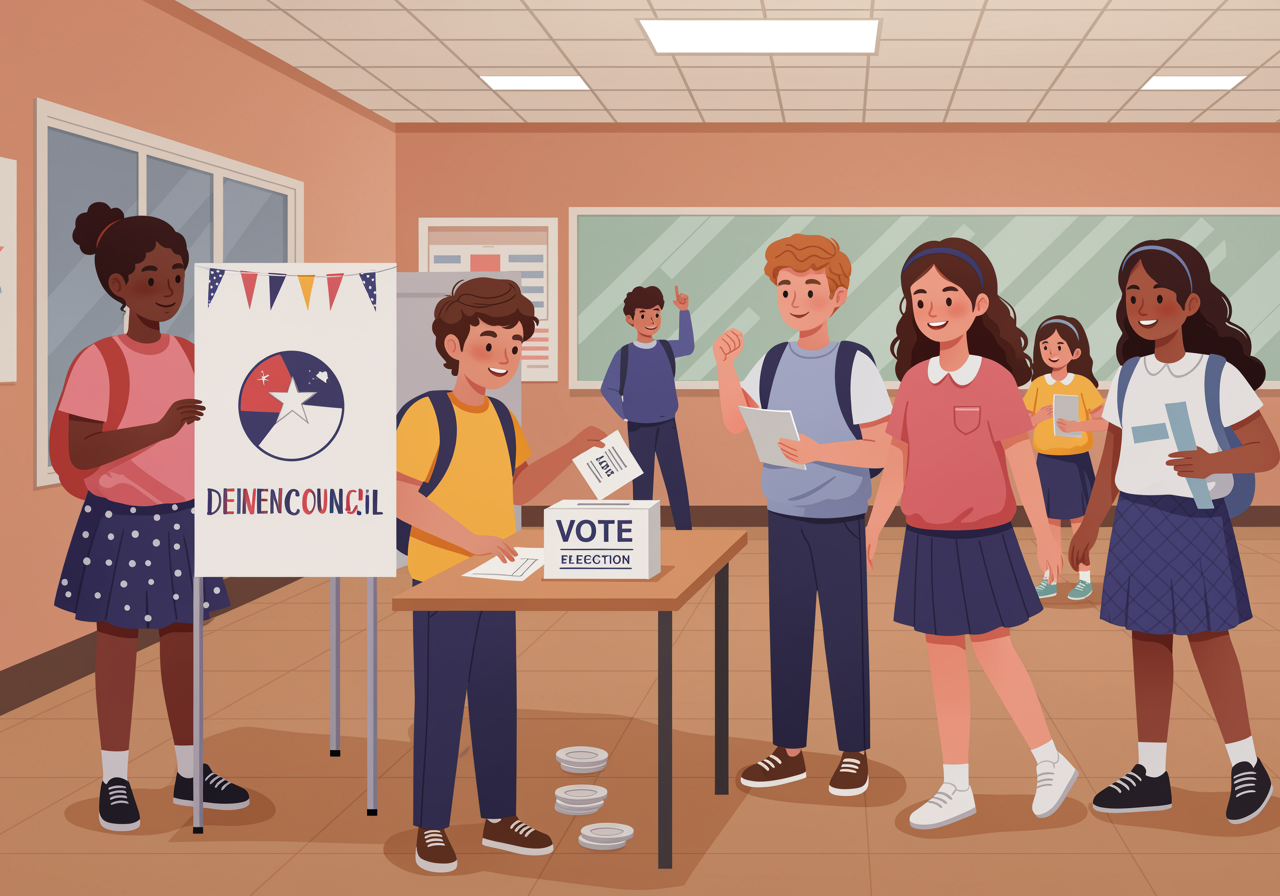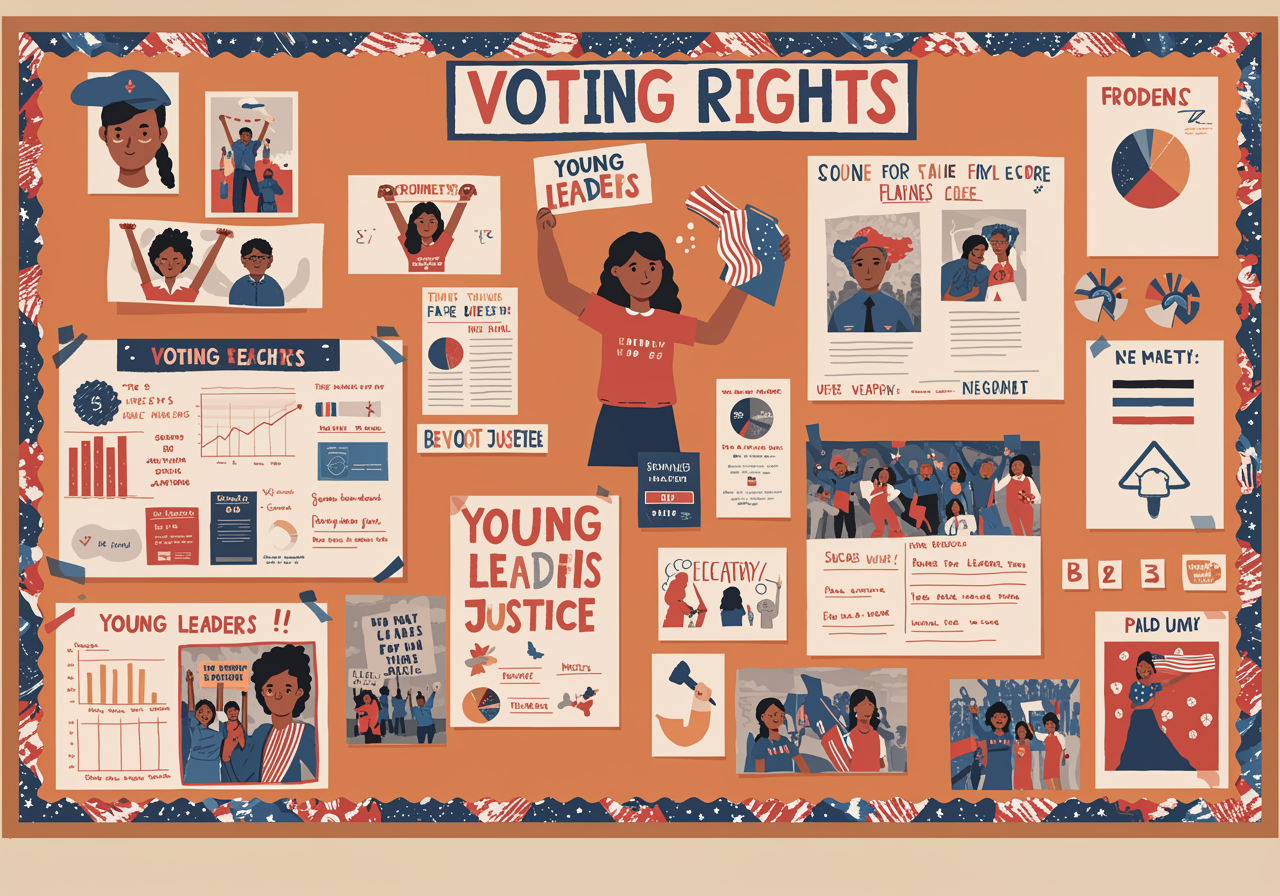What If Every Teen Could Vote? The Wild World of Youth Power in Elections

Discover how young voices could shake up democracy and change everything!
Imagine if your teen’s opinions could actually help choose the next president – what would our world look like then?
Overview
Have you ever wondered what would happen if your teenager's voice carried the same weight as yours at the voting booth? Young people today care deeply about issues like climate change, college costs, and social justice – but they're often the smallest group of voters. When teens and young adults participate more in elections, they can completely flip the results and bring fresh perspectives to old problems. It's like adding a whole new ingredient to a recipe – suddenly everything tastes different!

Understand in 30 Seconds
Get up to speed quickly
- Young Voters Are Rare Birds: Only about 50% of people ages 18-29 vote, compared to 70% of older adults. That's a huge missing voice in our democracy!
- Different Priorities, Different Outcomes: Young voters often care most about climate change, student debt, and social justice – issues that might not be top priorities for older voters.
- The Ripple Effect is Real: When more young people vote, candidates start paying attention to their concerns and changing their campaign promises.
- History Shows the Power: In elections where youth turnout was high, we've seen major shifts in policies around education, environment, and technology.
Real Life Scenario
Situations you can relate to
Think about your school's student council elections. Imagine if only the seniors could vote every year – the policies would probably focus on things like senior privileges and graduation parties. But what if suddenly all grades got to vote? The winners might start caring about cafeteria food, earlier dismissal times, or better sports equipment that benefits everyone. That's exactly what happens in real elections! When young people show up to vote, politicians realize they need to talk about student loans, climate change, and job opportunities. It's like the difference between planning a party for just adults versus planning one that kids will enjoy too – the whole event changes!

Role Play
Spark a conversation with “what if” scenarios
What if you were running for mayor and suddenly discovered that 70% of voters in your town were under 25?
- Role play: Take turns being the candidate and voter. The candidate has to completely redesign their campaign promises to appeal to young voters, while the voter asks tough questions about issues that matter to them.
What if your family had to vote on where to go for vacation, but only the opinions of family members over 40 counted?
- Role play: First vote with just parents deciding, then vote again with everyone's voice equal. See how different the destination choices become when everyone gets a say!
What if your school let kindergarteners vote on high school policies?
- Role play: Discuss how age and experience affect voting decisions. Role-play a school board meeting where different age groups advocate for what they think schools need most.
FAQs
Frequently asked questions people want to know
Why don't more young people vote if their voices matter so much?
Many young people feel like politics doesn't affect them directly, or they think their one vote won't make a difference. Some also find the registration process confusing or don't know where to vote.
Do young voters always vote the same way?
Not at all! Young people have diverse opinions just like any age group. They might agree on some big issues like climate change but disagree on how to solve problems.
What's the youngest age someone can vote?
In the United States, you must be 18 to vote in federal elections. Some places let 17-year-olds vote in primaries if they'll be 18 by the general election.
Examples in the Wild
See how this works day to day
- In the 2020 U.S. presidential election, youth voter turnout reached 50% – the second-highest in decades – and many analysts say it helped determine the outcome. (Center for Information & Research on Civic Learning and Engagement (CIRCLE))
- Scotland lowered its voting age to 16 for local elections in 2014, and studies show these young voters are highly engaged and well-informed about issues. (Electoral Commission UK)
- In Brazil, voting is optional for 16-17 year olds, and about 1.4 million young people in this age group participated in the 2022 presidential election. (Superior Electoral Court of Brazil)
- The 2018 U.S. midterm elections saw a 79% increase in youth voter turnout compared to 2014, largely driven by concerns about gun violence and climate change. (U.S. Census Bureau)
In Summary
What you should know before you start
- When more young people vote, politicians pay attention to issues like climate change, student debt, and social justice
- Youth voter turnout is typically much lower than older adults, making their voices underrepresented in democracy
- Countries that have lowered voting ages or encouraged youth participation have seen positive results in civic engagement
- Young voters can completely change election outcomes and policy priorities when they show up in large numbers
Pro-tip for Parents
You got this!
If your teen expresses strong political opinions but dismisses voting as 'pointless,' try connecting their concerns to local issues first. Show them how city council elections affect things they care about – like public transit, local businesses, or community programs. Starting small helps them see the direct connection between voting and real-world changes in their daily life.

Keep an Eye Out For
Find these examples in everyday life
- Local elections in your area where youth candidates are running or youth issues are on the ballot
- News stories about countries that have lowered their voting age and the results
- Student government elections at your teen's school as a mini-version of real democracy in action
Explore Beyond
Look up these related research topics
- How different countries handle voting age and youth participation in democracy
- The history of voting rights and how they've expanded over time
- How social media and technology are changing the way young people engage with politics